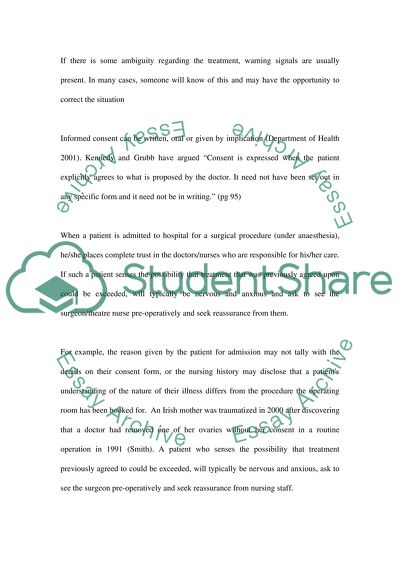Cite this document
(“Patients Consent for Surgery Essay Example | Topics and Well Written Essays - 1000 words”, n.d.)
Retrieved from https://studentshare.org/health-sciences-medicine/1513041-patients-consent-for-surgery
Retrieved from https://studentshare.org/health-sciences-medicine/1513041-patients-consent-for-surgery
(Patients Consent for Surgery Essay Example | Topics and Well Written Essays - 1000 Words)
https://studentshare.org/health-sciences-medicine/1513041-patients-consent-for-surgery.
https://studentshare.org/health-sciences-medicine/1513041-patients-consent-for-surgery.
“Patients Consent for Surgery Essay Example | Topics and Well Written Essays - 1000 Words”, n.d. https://studentshare.org/health-sciences-medicine/1513041-patients-consent-for-surgery.


